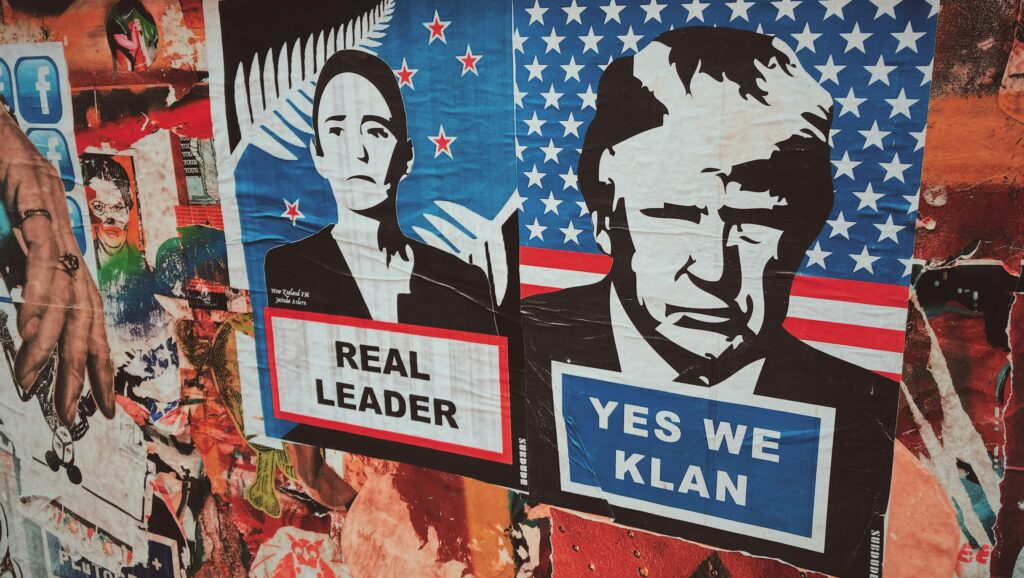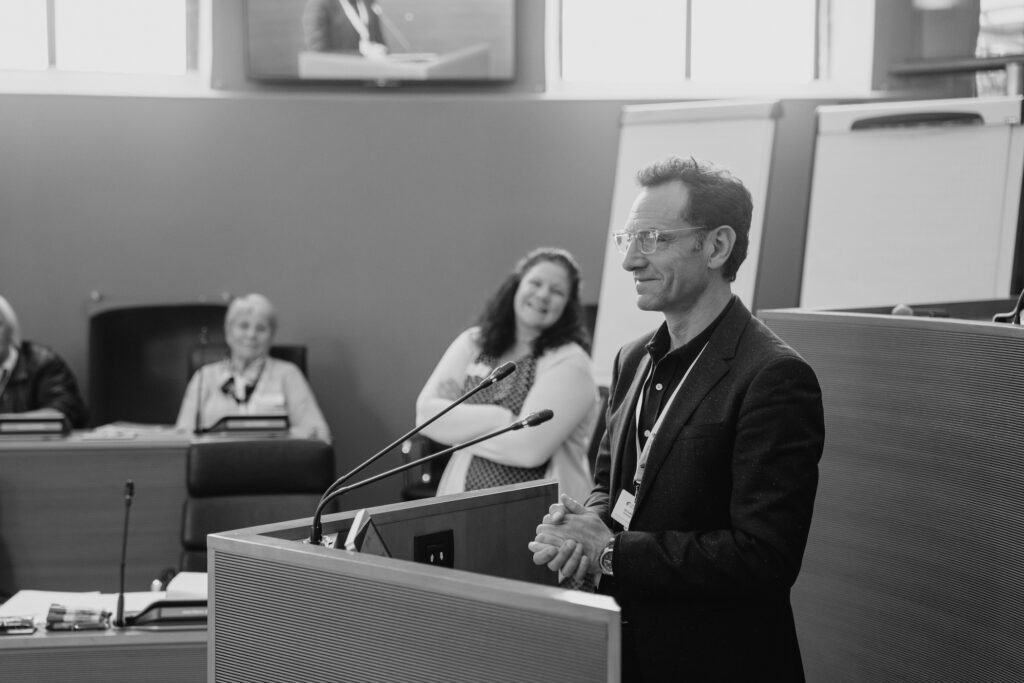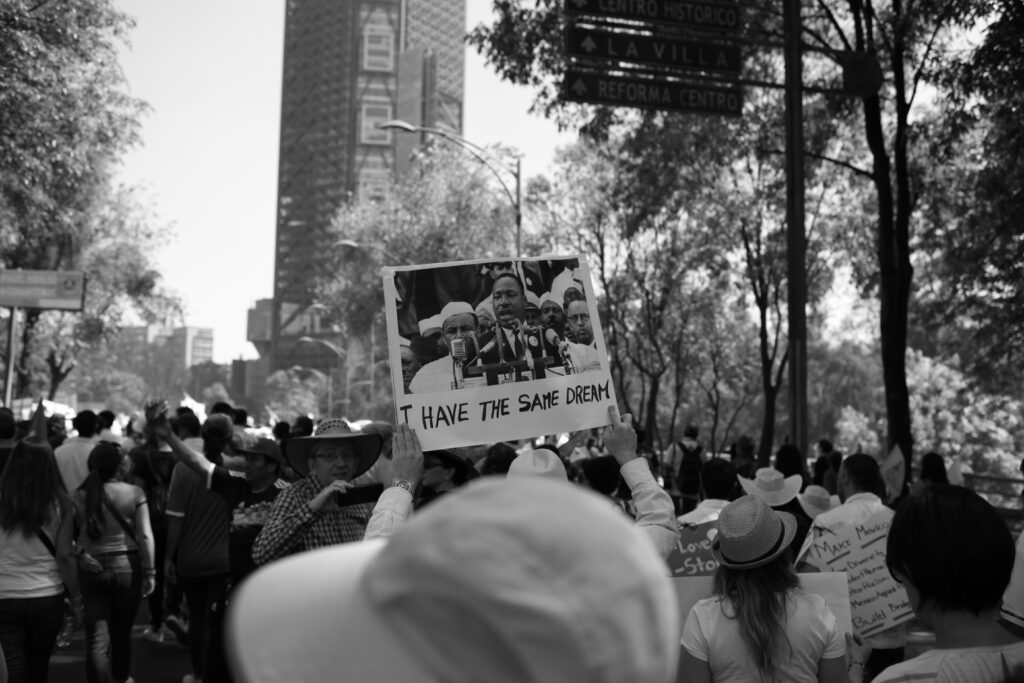[Excerpts from Le petit manuel de créativité politique – Comment libérer l’audace collective, translated by Dreamocracy and reproduced here by permission of publishing house Le Félin, Paris. Footnotes have been removed.]

- Political Creativity
6 reasons why political creativity is urgently needed
"Authority requires prestige, and prestige requires distance.” - Charles de Gaulle
"We live in a world that is changing at unprecedented speed, a world that is constantly being challenged and that is disrupting old ways of doing things. Given this context, I believe that if politics wants to remain relevant and useful to citizens, it must change its approach. It has to experiment with new ways of doing things and new solutions. That's what we're doing at the Ministry, and it's quite revolutionary. I hope that similar institutions will soon be set up in other parts of the world. - Kristina Persson, former Swedish Minister for the Future
Today’s challenges are well known: the rise of fundamentalism and terrorism; the urgent need to reform our economic model so that we can share prosperity between 9 or even 10 billion people while drastically reducing our impact on the environment; managing pensions, immigration and public debt. And so on. The list is long, to the point of paralysis for political action. There’s no point dwelling on it. What is essential is to understand the new characteristics of these challenges, which call for greater organisational and societal plasticity. Indeed, “change” can no longer be a comfortable evolution, with the luxury of taking one’s time and waiting for economic growth and technological progress to resolve them sooner or later. Like Kristina Persson, former Swedish Minister for the Future, Marc Luyckx Ghisi, Belgian philosopher and mathematician, believes that “we are in a period of global transformation of our societies, and this transformation is rapid and profound, probably more important than the Renaissance”.
More specifically, the challenges we face require us to be more politically creative than ever for at least six reasons:
- If they are not resolved as a matter of urgency, our very survival is threatened.
- They have a cross-disciplinary and global impact, because of our increased interdependence on each other and on our environment.
- Public expectations and economic models are out of step with political methods
- Technological advances are accelerating change.
- Creativity in politics is under threat.
- And these are challenging times.
1. The future looks like this: more trouble, less time, less money
“Change is now”: François Hollande’s slogan for the 2012 election campaign seems misleading today. But it captured a reality: the urgency of reform. In many areas, analysts are telling us that the “windows of opportunity” for reforms that are organised and not imposed in the face of difficulties will not be open for long, if they have not already closed.
Why is that? Because 1.2 billion more human beings will populate our circumsolar vessel between now and 2030. This population “delta” represents the world population in 1850. The pace of global demographic growth is slowing, but this extra population comes on top of the rapid increase of recent decades and exponentially increases the difficulties it generates.
Secondly, because we have exceeded our planetary limits. The twentieth century saw the emergence of two key phenomena that exacerbate our collective problems: population growth and an unprecedented increase in wealth. The resulting “environmental footprint” exceeds planetary limits in areas that are key to human survival. Of the ten limits to planetary ‘portability’ identified by Swedish scientist Johan Röckstrom and his team at the Stockholm Resilience Centre, we have already exceeded four and the others are approaching the danger point, heralding sudden, non-linear, potentially catastrophic and hard-to-predict changes to the environment.
For the first time in human history, mankind is endangering his own species: climate change, overexploitation of finite natural resources, destruction of the ecosystems and biodiversity necessary for life, extreme pollution. The clash between demographic pressure and the limits of our life-support system makes reform all the more urgent. In the past, the debate between proponents of laissez-faire and ecology was whether we should develop economically before worrying about the environment, or whether we should do both at the same time. We no longer have that option. The question now is whether we will be able to act quickly enough not to exceed the limits that undermine the very foundations of human well-being and prosperity, for the dimensions that are still within safe limits, and whether we will be able to control the damage for the parameters for which humanity is already in the red.
The first urgent need for political creativity: we are in a race against time, and the only chance of winning is to unleash a wave of political innovation at every level.

2. We are, more than ever, in the same boat
Not only are changes accelerating, but their scale is magnified by the growing global interdependence of people, products and issues. Edgar Morin points out that we are living through “interdependent and entangled ‘polycrises’, constituting a gigantic planetary crisis that is nothing other than the crisis of humanity that is unable to become humanity”. Even a regime as isolated from the world as North Korea can change the course of history (think of the Sony affair and the film The Interview). “We operate in a global political community, a global market”, says Achim Steiner, Executive Director of the United Nations Environment Programme. A classic observation, but one from which he draws a reason for hope: “sooner or later, it will be a disadvantage for national economies, industrial sectors and companies to be seen as part of the problem, rather than part of the solution”.
Globalisation is nothing new, but this interdependence is growing in all areas. Philosopher Michel Serres analyses the problem as follows: “We have become dependent on what depends on us”. Like the one who gets the blame, humanity is the victim, he points out, of a backlash of its own making. Of various sticks, in fact. He draws a parallel between the global financial crisis that began in 2008 and global pollution and global warming. His interpretation of “too big to fail” is as follows: “For the poor – you, me – to have had to rush to the rescue of the rich, through the intermediary of the State, it would have been necessary for the rich to become so colossally rich that they then seemed to everyone as necessary to our survival as the world itself”. The same applies to climate change. Man, who thought he had developed the tools to dominate the elements, has become dependent on them. To overcome these crises and dependencies, we need to invent something radically new. In his view, “sustainable development” is merely a way of accommodating the old. Instead, he calls for a new “springtime” of ideas and institutions.
This presents us with the second creative urgency: the interdependence between issues means that we can no longer ignore the indirect impact that a policy choice in one area will have on other sectors. In fact, it is these shock waves that are becoming the dominant effect.
3. A less hierarchical society looks forward to more collaborative institutions
The twentieth century’s belief in the effectiveness of vertical hierarchies, ‘command and control’ systems and centralisation, developing innovation at the end of a highly secretive process, illustrated in a way by the quotation from General de Gaulle at the start of this article, has given way to much more decentralised, open and horizontal ways of operating, as called for in the public domain by the now former Swedish Minister for the Future, Kristina Persson.
Citizens are more technologically literate than ever before, and are less and less hierarchical in their approach, but more interested in sharing and open collaboration. In addition, the concept of the general interest, inherited from the Enlightenment, which required it to be forged by elected representatives of the people, who would translate this vision into law and apply it uniformly to all, no longer works for better-informed citizens who no longer accept a general interest that seems to be dictated to them, without explanation or transparency. The uniqueness of the law “that liberates” is no longer evident when society has become more complex. What’s more, the new capitalism thrives on creativity, and citizens expect the same from the State.
Jeremy Rifkin, in his book A New Consciousness for a World in Crisis, Towards a Civilisation of Empathy, pointed out that we have moved from a pyramid structure based on relationships of force, authority and power, with the Church, the State, business leaders and, generally speaking, men at the top, to a society organised much more horizontally, around sharing “peer-to-peer” networks, encouraging co-leadership and collective intelligence.
In Surfer la vie, comment survivre dans la société fluide, cybernetician Joël de Rosnay points out that “in this type of organisation, power, elitism and power relations are replaced by influence, participation, inner motivation, associative relations, complementarity and flow relations”. In this new model, there is a major discrepancy between society’s expectations of exchange, inventiveness, transparency, participation and empathy, and the structures of the past, embodied by a strong, centralised state with a virtual monopoly on the ability to think and make decisions, with the arcana reserved for leaders and lobbies. “Our current institutions date back to the 18th century. They must no longer give the illusion that they are sufficient for democracy”, says Alexandre Malafaye, creator of La vraie primaire. And, we would add, they are no longer sufficient to meet the need for more rapid invention of solutions that are ever better adapted to the reform needs we face.
The third industrial revolution needs institutions to match. The institutions we know today were designed in the 17th, 18th and 19th centuries, around a technology – printing – invented in the 15th century. In this system, with this type of technology, perhaps the most appropriate thing was for a limited number of people to make decisions for the majority, who expressed themselves by voting, infrequently. The entry costs to participate are high: either you devote your whole life to politics, or you represent a significant private interest, with adequate financial resources to make your voice heard. Today, the costs of participation are significantly reduced by new information and communication technologies. Pia Mancini, an Argentinian activist who helped launch the citizen participation platform Democracy OS, emphasises this point: “Our political systems have remained the same for the last two hundred years and expect us to be passive recipients of a monologue (…) Conflict can only emerge between a system that no longer represents, that has no capacity for dialogue, and citizens who are increasingly used to representing themselves”. In her view, the motto of the early days of American democracy – “No taxation without representation” – must evolve into “No representation without conversation”. “If the internet is the equivalent of the new printing press, then what is democracy for the internet age,” she asks.
Jeremy Heimans, one of the founders of Avaaz, the online petitions site, agrees: “The new power is the deployment of mass participation and the coordination of peers to create change and shift”. Enthusiastically, he contrasts “the old power, held like a currency, by a few; it’s all about lines of command, from the top down; it’s all about being led by leaders, in a closed system” with “the new power, which is like an electric current, created by many, where we download from the bottom, we share, it’s the peers who lead, it’s open…”. The business world is adapting to the new reality, but the State’s transformation efforts need to catch up. The weight of hierarchy and processes nips in the bud inventiveness, points out David Graeber, anthropologist and economist, in his book The Utopia of Rules: On Technology, Stupidity, and the Secret Joys of Bureaucracy, said “we have become accustomed [to bureaucracy]. Now we’re swimming in bureaucracy and red tape, as if the prophecy of Terry Gilliam’s film Brazil had come true.” Graeber developed the idea that capitalism has deliberately put the brakes on what he called “poetic technologies” and creative technologies in favour of “bureaucratic technologies”, geared towards surveillance, control, discipline and administrative tasks.
Should we be enthusiastic about participation, or worry, as some do, about the “Uberisation of politics”? Participation and collaboration need to be well organised if they are to make a real contribution to our ability to think collectively. But whatever some people may think, we have to recognise that citizens feel they have the capacity to do so, and can no longer imagine not being involved in a process of dialogue and collaborative reflection. They see themselves as capable of participating in decision-making and expect to be empowered to do so. The OECD warns that this is not just an intellectual fad: “In the first decades of the 21st century (…) the uniformity and subservience of mass civilisation will give way to the creativity of a knowledge-based economy and society”, it stated in its report The Creative Society of the 21st Century. Collaboration is becoming the normal mode of interaction. A striking example of this expectation is the totally new and ambitious campaign of laprimaire.org, an open primary “in which all ideas can be expressed” and “organised to enable the French to choose a citizen candidate for the 2017 presidential election freely, transparently and democratically”. Over several months, some 300 candidates came forward, a finalist was chosen, and more than 120,000 French people took part in selecting the final candidate. The parties, such as Emmanuel Macron’s En Marche! movement, or La France Insoumise, were not mistaken either in the run-up to the presidential election, with Jean-Luc Mélenchon analysing: “No one can say ‘I’m right, because I’m the leader’ any more. They have to justify their decisions.”
Third creative emergency: Citizens are getting impatient. The longer we delay allowing them to participate effectively in discussions and choices, the more they will invite themselves.
4. Technological progress speeds everything up
Exponential technological progress is making change more complex. It is widely acknowledged that we are in the process of moving from the second to the third industrial revolution, based on information technologies and distributed modes of production, for example in the energy sector. The private sector has long been aware of this and has drawn its own conclusions. The “age of spiritual machines” – i.e. machines that are more intelligent than we are – prophesied by Ray Kurzweil, the pope of transhumanism, is not far off. This technological acceleration will bring new challenges, amplify others and resolve some of them, but in any case it will have multiple repercussions on our social, economic, cultural and political organisation. It calls for a creative leap forward, because :
Recent advances in connectivity, robotics, nanotechnology, artificial intelligence, biotechnology and data processing have increased people’s appetite for change.
Technological advances are enabling utopians in action to invent new social and human solutions, as the collaborative economy demonstrates on a daily basis, and new tools, such as “civic tech”.
In contrast, they make the world of politics seem very archaic. As journalist Francis Pisani points out after his world tour of new forms of innovation, innovation “is no longer the preserve of engineers; it now blasts through all frontiers”.
Fourth creative urgency: if our modes of governance do not show themselves capable of generating solutions more quickly and of grasping the goodness of technological advances, our rate of problem-solving will be increasingly out of step with the rate at which problems emerge.
5. Creativity in politics is under threat
It is fashionable in the public sector, as in the corporate world, to declare oneself in favour of boldness and novelty. Yet constructive change is hampered by the natural conservatism of institutions and populist tendencies, as we shall see later. “Creativity is such a positive concept that it might seem strange that anyone could be against it. But the truth is that unleashing the power of the masses to act with their own ideas is deeply troubling for all sorts of actors”, warns Adam Lent, Director of Research and Innovation for Ashoka. Numerous studies show that, in fact, creative ideas are often rejected in favour of old, “tried and tested” methods. Beyond the rhetoric, the natural inclination of individuals and organisations is towards conformity and uniformity. We will see this in more detail in the next chapter: specialised thinking, expertise becoming an issue in power struggles, privileges, rents, preoccupation with rapid return on investment… neither the players nor the system are geared to facilitating the emergence of new approaches.
And if politicians don’t think much about their ability to encourage creativity, creativity specialists aren’t interested in politics either. “What is painfully obvious is that politics is so important, in so many ways, to everyone, and yet it is so often forgotten, at least in creativity studies. This difference between level of importance and amount of research is greater for politics than for any other topic of study in creativity studies. Perhaps it’s the phenomenon of the “fish that can’t see the water”, says Mark Runco, a professor at the University of Georgia, author of dozens of research articles on the subject, a reference university textbook, co-editor of the Encyclopedia of Creativity and founder of the prestigious scientific journal Creativity Research Journal. If he is aware of the paucity of scientific studies on the links between creativity and politics, we can say that the case is well-founded.
Fifth urgency: the brakes on political creativity have not been thought through, so the natural mechanisms that limit it dominate.
6. Anxiety can be leveraged: let's take advantage of the crisis to question ourselves
Are our minds, like the shrunken heads of the Jivaros Indians, doomed to be parched by ever more reductive discourse in the face of contemporary anxieties? Or can fear, as the poet Jean Gamblin invites us to think in a video that caused a sensation, be mobilised as a driving force for positive social change? Because there is paralysing fear, which makes people cower, and there is the anxiety generated by the sensation of risk, which can mobilise people.
Today, fear and anxiety are treated as electoral opportunities for cynical rhetoric of closure. According to The Economist, this may even be the new political divide: rather than the classic right-left, liberal-Keynesian axis, the opposition today is between rhetoric of closure and openness, to be found on both the right and the left. Between those who “argue that the world is an ugly, threatening place, and that wise nations should build walls to keep it out” and those who “devise courageous policies that preserve the benefits of openness while remedying its side-effects”. So it’s a division “between simplicity and complexity”, says political scientist Roland Kupers, professor at the University of Singapore and author of a recent book on complexity and public policy, because “what is closed is controllable, simple, while what is open is complex”.
We are probably ‘fortunate,’ if we know how to acknowledge this, to be living in a period of anxiety, precisely because the majority of citizens are well aware that what we took for granted is no longer a given, and that simply turning in on ourselves will not solve our problems in the long term. Psychology and neuroscience are encouraging us to do so. Social psychologists have indeed shown how most of us shut ourselves off to differing opinions in ordinary times. Changing one’s mind is difficult and rare for almost everyone. The usual reaction to a new idea is to listen – more or less – and… put the idea to one side. This is the well-known phenomenon of cognitive bias, which is reinforced by social networks. Individuals hear and retain arguments that support their initial opinion. And the process of group polarisation means that in a conversation, the dominant point of view in the group tends to overwhelm opposing points of view.
Is this collective mental confinement inevitable? And would the only electorally viable political option be to pander to this withered thinking? No. Neuroscience has revealed in recent years that emotion plays a key role in the receptiveness of citizens, and that the ability to find and accept new ideas increases with levels of anxiety. If you or I are in a comfortable routine, we don’t feel obliged to face up to contradiction. If someone else tries to impose their views on us, we even feel threatened and close ourselves off to their arguments. But in particular circumstances, an idea or opinion can help the person receiving it to evolve and lead to a new approach. As we have seen, and as the polls mentioned above show, citizens feel it: we are not in a period of routine. The uncertainties surrounding the future of our social model, and the prolonged period of upheaval we are facing, have the ‘merit’ of creating an anxiety conducive to existential questioning, enabling us to overcome these psychological biases. In fact, the state conducive to heightened receptiveness is what scientists call “anxiety”. This state arises when we are faced with an unusual situation, which encourages the exploration of new possibilities, and promotes the examination of opposing points of view, compromise and open dialogue with those who have differing opinions. In short, if things are going well, why should I change my mind? But if things are really going to go badly, perhaps I’d better listen to what I’m told…
Sixth emergency: did Winston Churchill really utter the phrase “never let a good crisis go to waste“? Historians are not sure, but the idea remains very apt.

Conclusion
Behind citizens’ apparent fatigue with democracy, France, the European Union and other democracies may well have reached that emotional state of anxiety that neuroscientists identify as conducive to genuine debate. This offers political leaders who recognise it the opportunity to foster collective intelligence, to organise it, to move the lines, to overcome political mentalities locked in restrictive patterns. Provided, of course, we appeal to such collective intelligence by offering bold visions, genuinely innovative ideas, and a discourse of humility in the face of the world’s complexity.
Citizens are fully aware of the world’s urgent challenges. And it would be surprising if they weren’t: they are omnipresent in the media. But they also know that the need for change is no longer the same as it was for the generations that preceded us. It is more urgent than ever. It gives us less and less time to reflect. It cannot be done in isolation in one part of society or the world without considering the multiple influences of the surrounding context. It is not about to slow down.
The level of complexity of change is unprecedented in human history. It is such that no enlightened leader’s brain can embrace it and derive from it an original course of action. It calls for new approaches. Minds are ready for creativity to be placed at the heart of political action, for the imagination of all to be mobilised. It’s only when political decision-makers take a genuine interest in the subject and realise that developing innovation is possible and pays off in electoral terms that the promises of change will no longer be merely incantatory and the camp of collective stultification will be defeated.
What’s stopping us?

Interested to know more about collective creativity in politics?
Contact the author of the handbook of political creativity!
Contact StephenRelated posts
-

- Democratic Innovations
Liberté, Égalité, Fraternité… Créativité! Dreamocracy’s Manifesto for 21st century democracy.
-

- Democratic Innovations
The Routledge Handbook of Collective Intelligence for Democracy and Governance
-

- Political Creativity
7 priority actions to put creativity at the heart of politics
